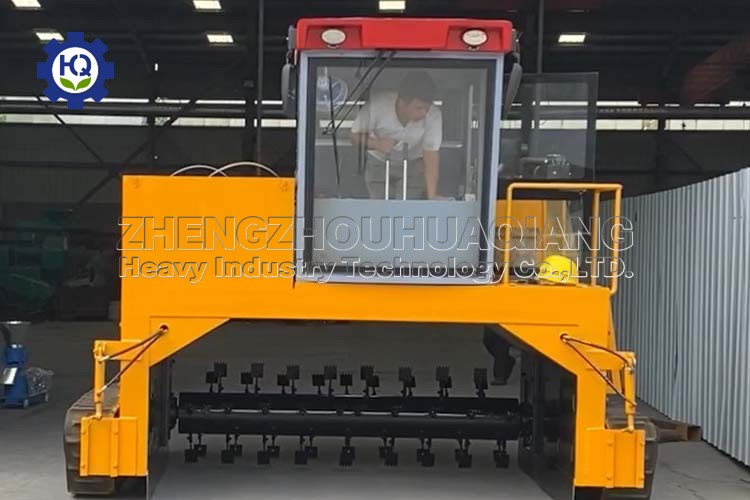Application scope of fermented sheep manure organic fertilizer composting machine
Application scope of sheep dung organic fertilizer turner
Organic fertilizer plant, lignite humic acid plant, microbial fertilizer plant, sewage treatment plant, large, medium and small farms and other enterprises.

Application of sheep dung compost turning machine
1. Sheep manure fermentation dumper is a common fermentation equipment which uses modern technology to transform agricultural waste, livestock manure and organic domestic waste into bio organic fertilizer. This product is suitable for the production of bio organic fertilizer by surface strip pile fermentation. Its mechanical equipment has the advantages of less investment, low energy consumption, fast fertilizer formation and large output.
2. Put the materials into the fermentation tank, and the materials will be stirred and broken regularly by the compost turning machine, and the organic matter will be decomposed under aerobic conditions. It also has the function of crushing, which greatly saves time and labor, improves the production efficiency and product quality of the organic fertilizer plant, and greatly reduces the cost.
3. Bio organic fertilizer dumper is a kind of bio organic fertilizer, which is made from livestock manure, agricultural waste, sugar mill filter mud, sludge, domestic garbage and other pollutants through the principle of oxygen consumption and fermentation, and then processed by NPK fertilizer granulator to improve soil quality.
4. Sheep manure fermentation turning machine can mix livestock and poultry manure, sludge with microbial preparations, and straw powder evenly, creating a better aerobic environment for the fermentation of materials.
.jpg)


.jpg)

.jpg)